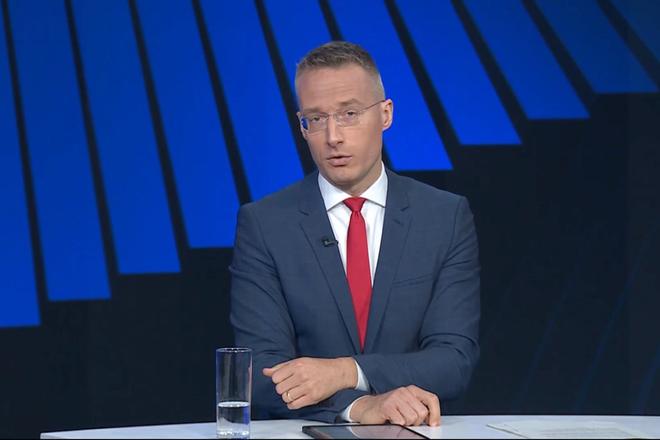Welcome to your weekly commentary and overview of news from Slovakia. Politicians continue to point the finger at the media after the attack on Fico, even in a ‘conciliatory’ parliamentary resolution. The law allowing for the political takeover of the public-service broadcaster RTVS advanced to its second reading unamended. TV Markíza prematurely halts the country’s most influential political debate show, with its host warning that the media is battling creeping Orbánification.
If you have a suggestion on how to make this overview better, let me know at michaela.terenzani@spectator.sk.
It’s not just RTVS: private TV stations are under pressure too
The government must continue doing the work it started before the attack, otherwise it would mean the Handlová attacker had succeeded in intimidating it, argues Deputy Prime Minister Robert Kaliňák, of the Smer party. His party leader, Prime Minister Robert Fico, was seriously injured in a shooting attack in the small town of Handlová on May 15; he remains in hospital. The sentiment expressed by Kaliňák last week resulted in, among other things, coalition MPs advancing to its second reading a proposed law that will allow ministers to dissolve the independent public-service broadcaster RTVS and replace it with a state media outfit that falls under their control.
But by the end of last week, the Slovak public learned that media freedom concerns have now spread way beyond just the public-service broadcaster.
Parliament says no to violence, and lectures journalists
An initiative launched by the president and president-elect just after the shooting, to bring representatives of all the parties represented in parliament around one table for a good-faith discussion, fizzled within days.
However, parliament did manage to agree on the text of a resolution condemning the attack and calling on society to reject violence, embrace pluralism and accept differing opinions. Out of 150 MPs, 130 were present for the vote and all voted in favour of the resolution. Distilling the many post-attack calls for reconciliation into a single act was something of success – albeit a symbolic one.
That is the good news. The not-so-good news is that the media and non-governmental organisations feature prominently in the document that both coalition and opposition politicians voted for – as targets of blame. In line with the politics of pointing the finger at the media as being somehow responsible for the attack, a tactic practised to both more and less subtle degrees by politicians from all three coalition parties, the parliament in its document “states, that the role of responsible and critical journalists is irreplaceable for a healthy society, but their work must be based on facts and not on spreading hate”.
Going beyond symbolic statements, Slovak National Party (SNS) leader Andrej Danko is promising measures that will put the media and NGOs in their place. We have yet to see a concrete proposal, though SNS politicians have already outlined some raw ideas about how they would like to control “the online space”, introduce a new form of “right of reply” and, for instance, oblige the media to publish information about where to contact the editorial office if someone – say, an SNS politician – wants them to make a correction. The latter is one of the less controversial ideas that Danko has unveiled so far, since any bona fide newspaper, news website, radio or television station would already have such contact information stated clearly on its website or in its pages. The absence of such information is in fact the hallmark of self-proclaimed “alternative journalists” who feed the public half-truths, outright lies or localised versions of Kremlin propaganda narratives.



 Michal Kovačič in Na Telo on Sunday. (source: Markiza screen grab)
Michal Kovačič in Na Telo on Sunday. (source: Markiza screen grab)